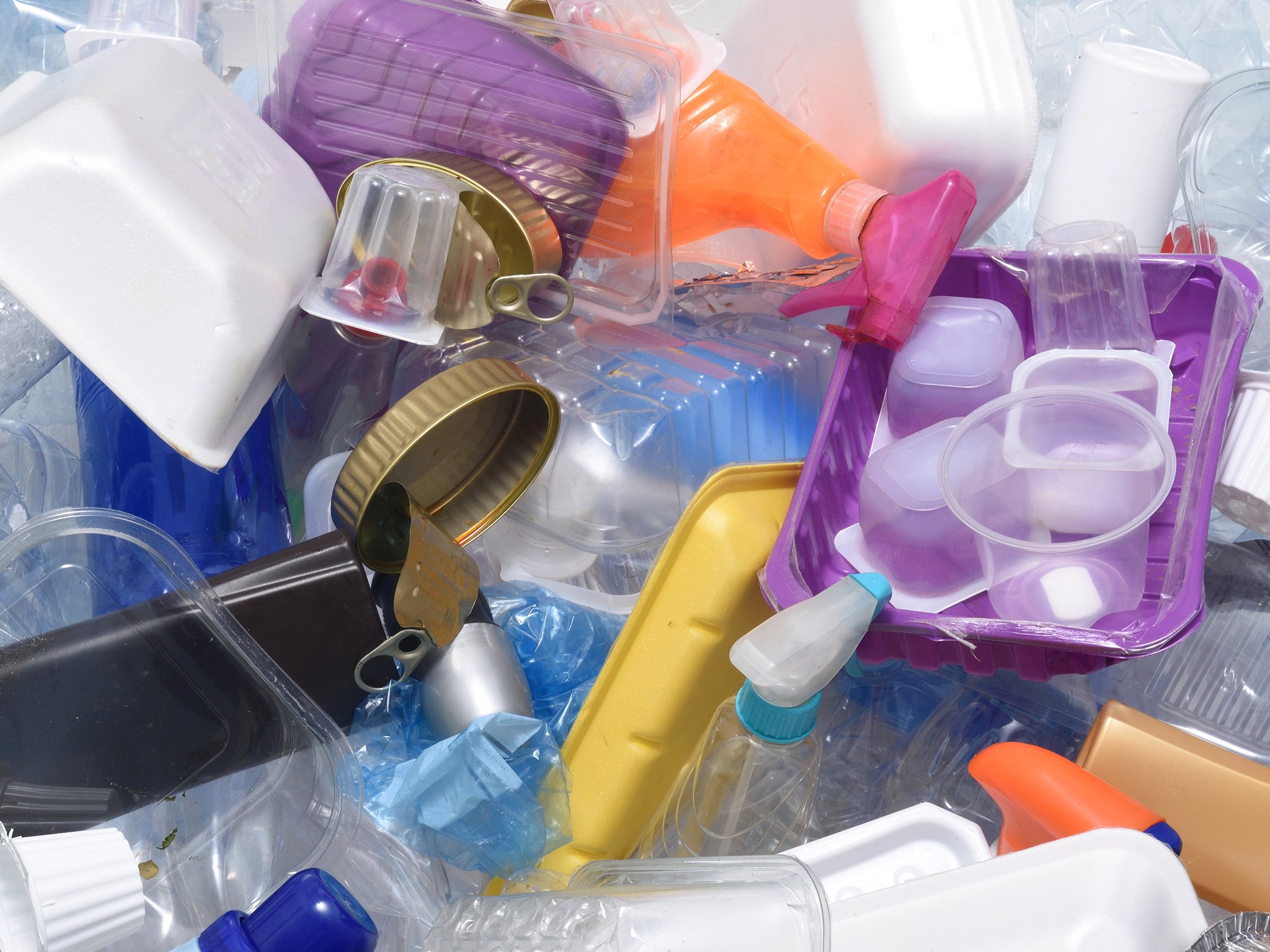Only one third of UK’s plastic food packaging is recycled, study finds
A large proportion is placed in landfill or burned, Local Government Association says

Your support helps us to tell the story
From reproductive rights to climate change to Big Tech, The Independent is on the ground when the story is developing. Whether it's investigating the financials of Elon Musk's pro-Trump PAC or producing our latest documentary, 'The A Word', which shines a light on the American women fighting for reproductive rights, we know how important it is to parse out the facts from the messaging.
At such a critical moment in US history, we need reporters on the ground. Your donation allows us to keep sending journalists to speak to both sides of the story.
The Independent is trusted by Americans across the entire political spectrum. And unlike many other quality news outlets, we choose not to lock Americans out of our reporting and analysis with paywalls. We believe quality journalism should be available to everyone, paid for by those who can afford it.
Your support makes all the difference.Only one-third of the plastic food containers used in the UK are collected for recycling, local authority chiefs have revealed.
New analysis by the Local Government Association (LGA), based on a survey carried out by Recoup, an organisation which promotes recycling, indicates 525,000 tonnes of plastic pots, tubs and trays are used by households each year.
But only 169,145 tonnes are put out for recycling, meaning that at least two-thirds of plastic food container waste likely gets incinerated or thrown into landfill.
The LGA said frustrated councils are doing all they can to tackle the problem, and blamed manufacturers for producing a “smorgasbord” of different plastics to package microwave meals and other products at the supermarket.
Judith Blake, the LGA’s environment spokeswoman, called on Theresa May’s government to bring in a ban on “low grade” plastics that are particularly hard to recycle.
“It’s time for manufacturers to stop letting a smorgasboard of unrecyclable and damaging plastic flow into our environment,” she said. “That needs to happen urgently, but the government should now consider banning low-grade plastics, particularly those for single use, in order to increase recycling.
“If manufacturers don’t want to get serious about producing material which can be recycled, and protecting our environment, then they should at least contribute towards the cost that local taxpayers have to pay to clear it up.”
The government is currently reviewing the producer responsibility system determining how much manufacturers pay towards the cost of the UK’s recycling system. Environmentalist groups think producers should be paying much more to boost collection and facilities.
Yet the packaging producers say they need help to change, arguing the UK’s recycling infrastructure is simply not good enough at the moment. Plastic packaging is made from a variety of polymer types, which need to be carefully separated out to allow for recycling.
And the separation of plastic taking place at materials recovery facilities is not always comprehensive enough to give producers the high-quality, recyclable pellets needed to create new packaging.
Martin Kersh, executive director of the Foodservice Packaging Association, said: “We must ensure that every penny raised in the name of producer responsibility is used to improve collection and recycling of packaging and does not disappear into government coffers.”
A recent study by consumer body Which? found 29 per cent of all plastic packaging used by British supermarkets was either non-recyclable or difficult to recycle.
The LGA suggested more manufacturers of packaging should simply switch over to materials which is more easily recycled. Microwave meals, for example, uses a kind of black plastic that cannot be easily separated out, but changing the colour of these trays could lead to an increase in recycling.
Yoghurt pots use a mixture of two polymers, polypropylene and polystyrene, but some companies are now using a more easily recycled material used for plastic bottles.
Join our commenting forum
Join thought-provoking conversations, follow other Independent readers and see their replies
Comments